On a cold, clear day this winter I spent a few hours with ambulance staff on strike in Bristol (part of the South Western Ambulance Service). As passing cars and passers by made their support known, I took a few photos and scribbled down some words. Thanks to everyone who made me feel welcome and more importantly, thanks to everyone in the ambulance service, and health and social care professions, for doing a difficult job at a difficult time. A difficult time which has lasted far too long.
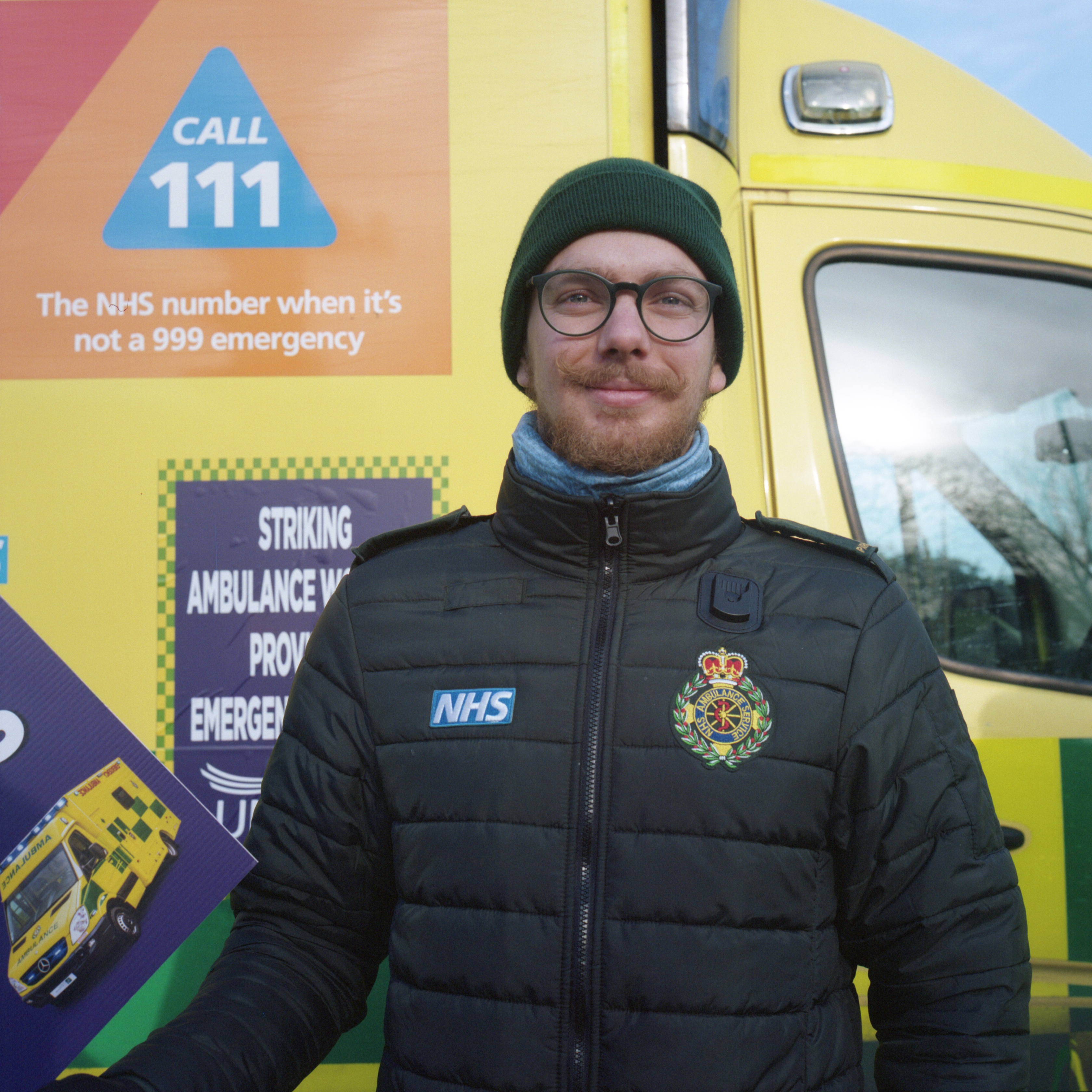
Tarin, Lead Paramedic
It’s actually been quieter on strike days. It’s not striking that’s putting people at risk it’s the day-to-day pressures.
The anti-striking bill…I’m offended by it. They say they want to change the rules so we have to provide a safe level of service – but that’s what we’ve been doing from the start.
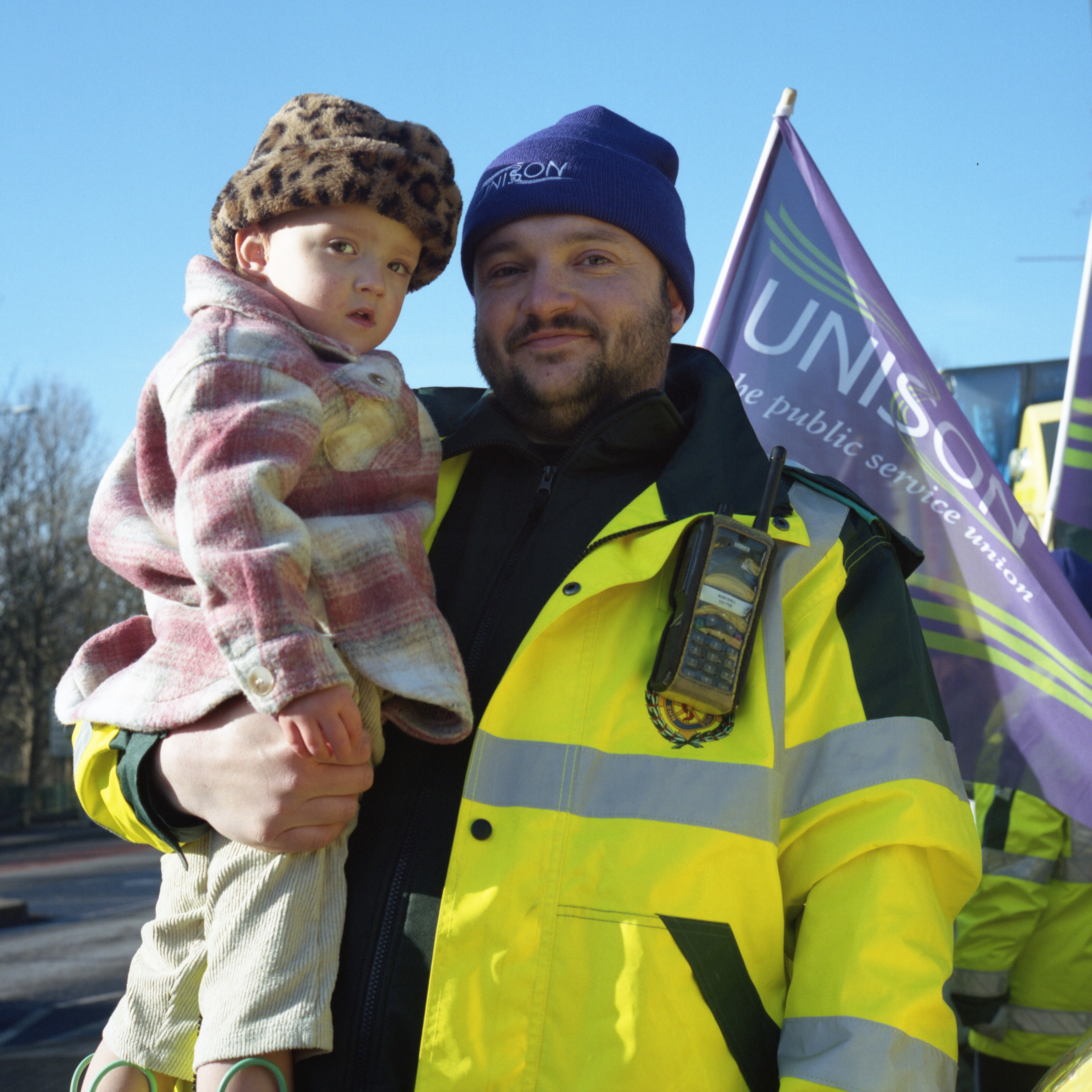
Joey, Student Paramedic
They’re trying to paint us against the public but we are the public, we use the NHS, our families rely on ambulances.
The longest wait outside hospital? I started a shift taking over a patient and handed the patient off to the next shift. A whole shift outside the hospital.
I’ve been in a hospital queue with a patient and we get a general broadcast – a call out to everyone – for a cardiac arrest in the town centre 5 minutes away and we couldn’t go. That’s tough.
Went to a good call the other day. An old guy had fallen out his chair. We picked him up, put him back and gave him a cup of tea. That was a good call. On a bad day he could be lying there for days with no ambulances to go because it’s not classed as high priority. But a fall can become a high priority.
How to solve it? I think it starts with care workers. They should be paid more to make the career more attractive. I think it’s something like 70-80% of people in hospital are fine but there’s nowhere for them to go. It’s called bed blocking. So it starts with the care sector and staffing. Brexit didn’t help with that. The staff shortages are caused by a few factors including Covid, pay and Brexit.
* Joey was an Emergency Care Assistant at the time of the strike.
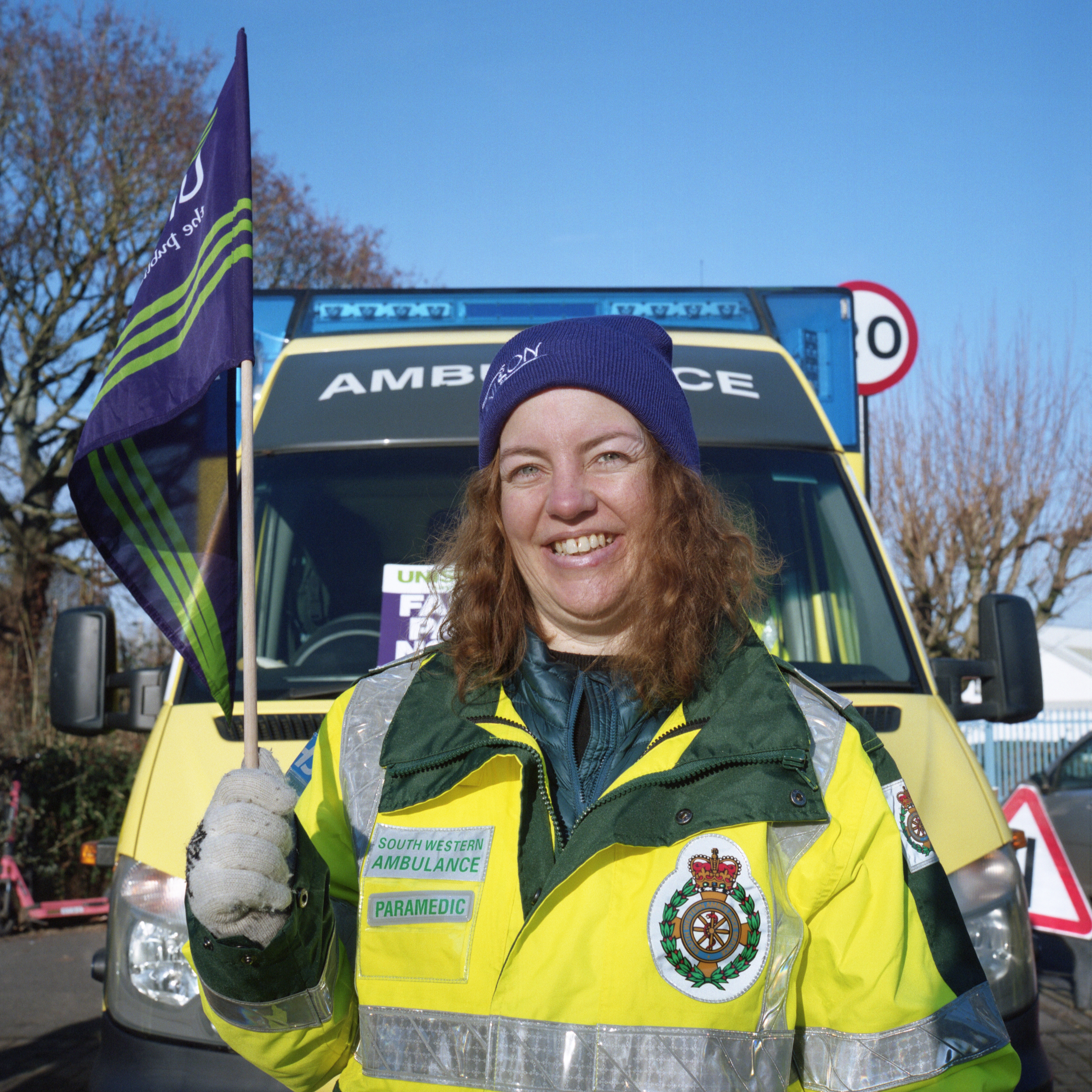
Rowena, Learning & Development
I’ve been doing this 25 years. I had 8 weeks training…No, I’m serious. Now there are university courses. It’s shorter for an ECA (Emergency Care Assistant) but they are paid £10-11 an hour. You get more working at McDonalds.
Ambulance delays should never happen contractually, and harm is occurring daily. It’s like putting the wrong tubes in on chemo or using the wrong drugs. It’s not allowed to happen. So we have to wait in the ambulance with the patient in the carpark. It used to be 3 patients per crew, now it’s 1 ambulance 1 patient.
We need more staff. More training. We could pick up the slack of GPs. There’s a lot we could do but there’s no time because we’re fighting fires and have to hit targets. There’s no space to do anything else.
Patients have a different experience depending on where they live. It’s not fair is it?
** Additional information: The nationally defined target for hospitals included in the NHS Standard Contract states that all handovers between ambulance and A&E must take place within 15 minutes, with none waiting more than 30 minutes. Since April 2018, an average of 190,000 handovers have missed this target every month. Over eight in ten of those whose ‘handover’ (from ambulance clinician to hospital clinician) was delayed beyond 60 minutes were assessed as having potentially experienced some level of harm; 53% low harm, 23% moderate harm and 9% could have been said to have experienced severe harm. Source: Association of Ambulance Chief Executives Report, November 2021.
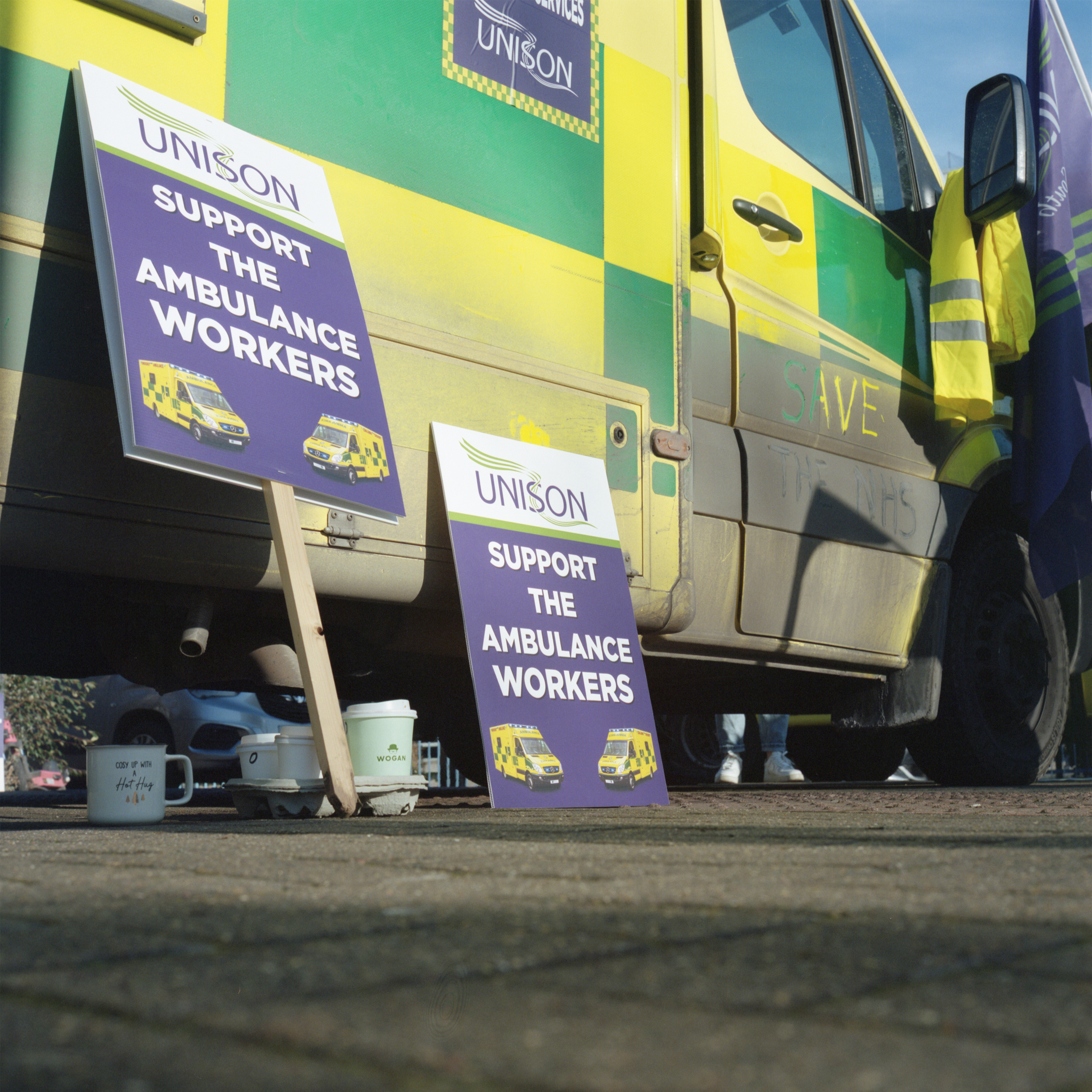
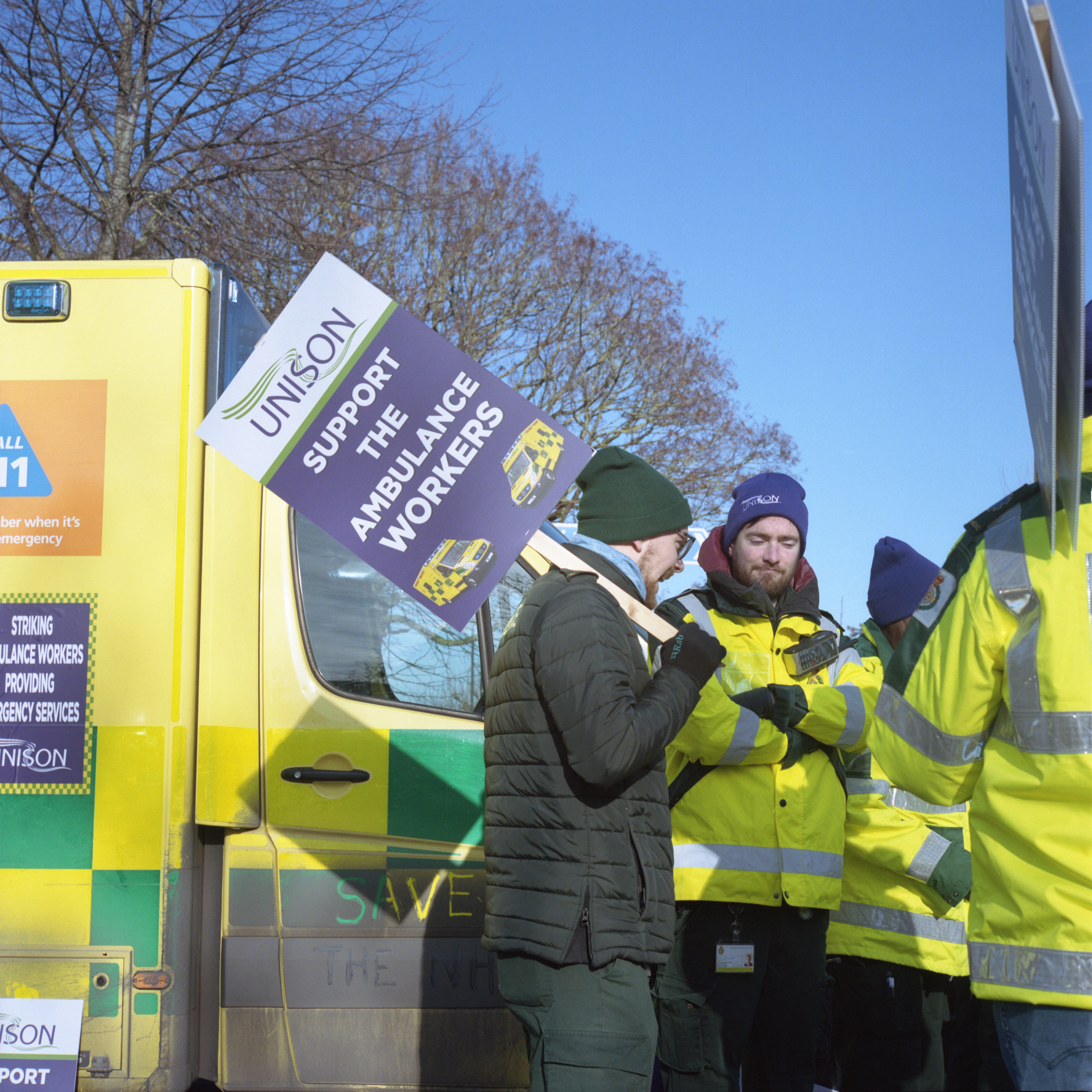
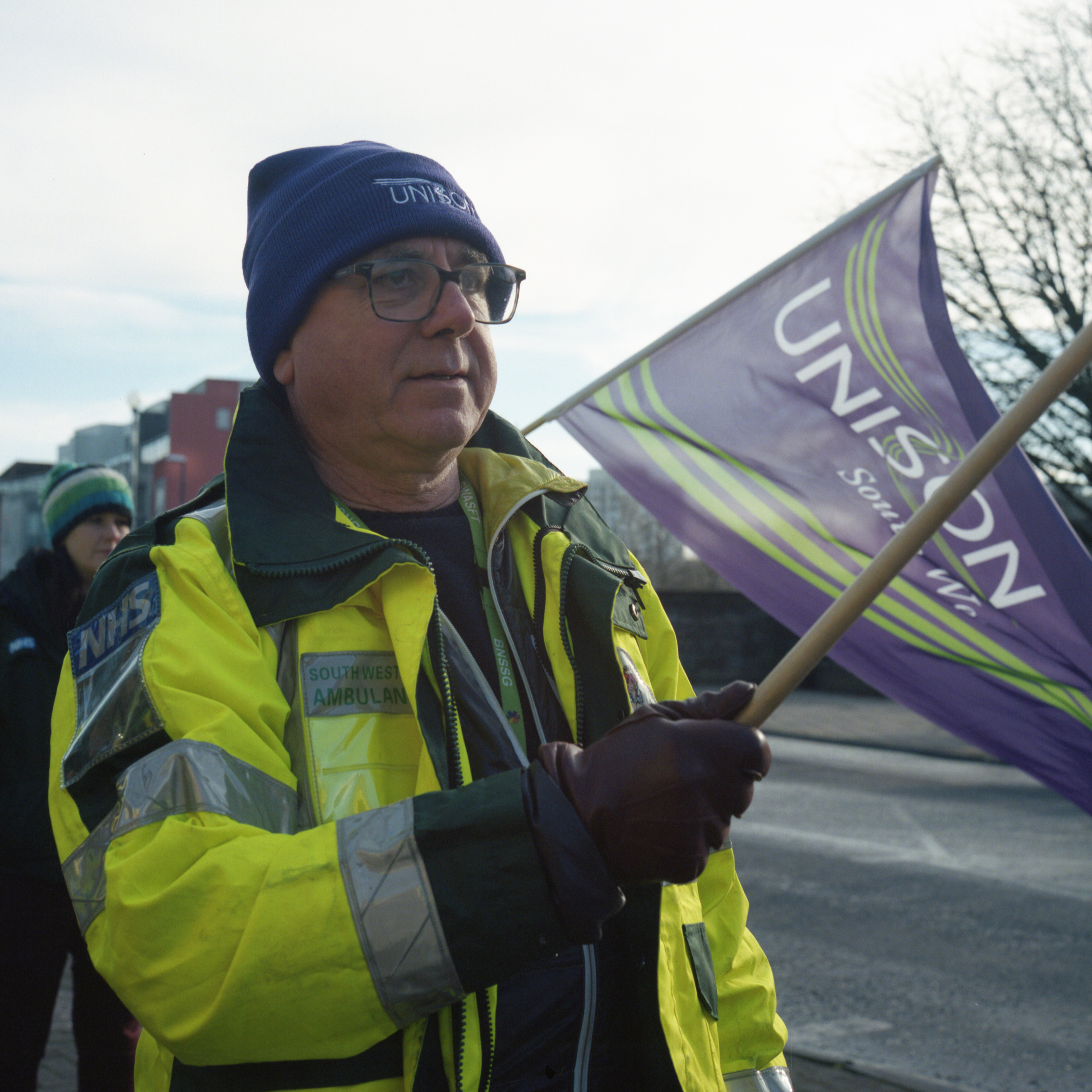
Antony, Emergency Care Assistant
I’ve been doing this for 6 years. It’s grim. It’s hard being stuck in a queue for hours seeing cat1 calls (highest priority) coming in we can’t get to.
The service isn’t very resilient. 10+ years of cuts and lack of investment results in an inability to cope adequately with even seasonal pressures let alone a pandemic. Staff in the NHS, however, prove time and again their personal resilience. Due only to their commitment and tenacity, we muddle through.
We need to take the politics out of it and find a way forward. And not just government politics but unions, hospitals, all of the politics. More nurses, more whatever is just a sticking plaster.
The world’s changed a lot since Bevan’s day. The government are digging their heels in – they know they just have to get through another year then it’s somebody else’s problem. Then they’ll get back in promising to fix it.
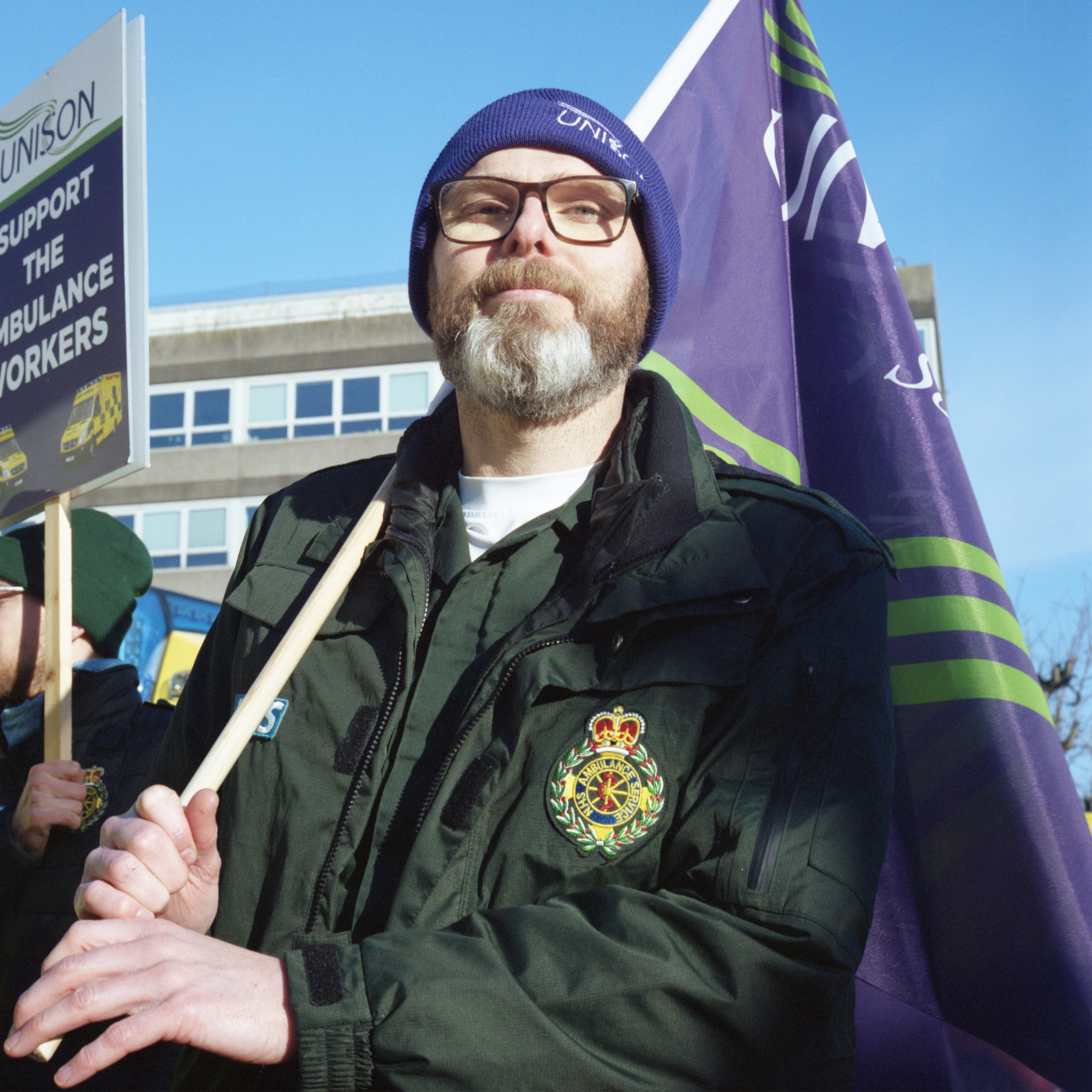
Michael, Paramedic
I’m striking to support my colleagues and the NHS, I want to help draw publication attention to the issues currently experienced within healthcare and the fact this is not be sustainable in the long term.
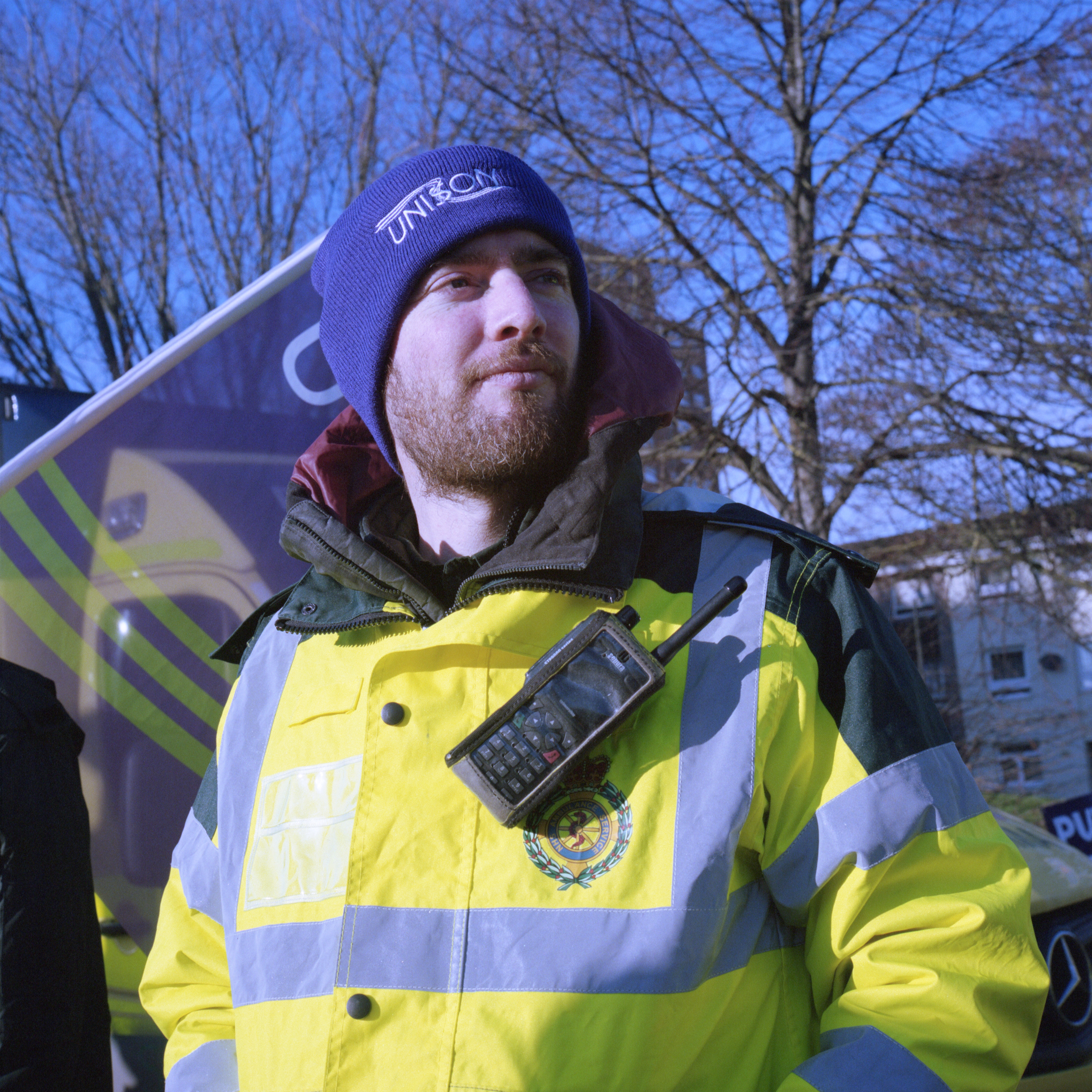
Jesse, Paramedic
Technical: All photos taken on Rolleiflex 2.8E
No colour editing. Some photos cropped / resized.

